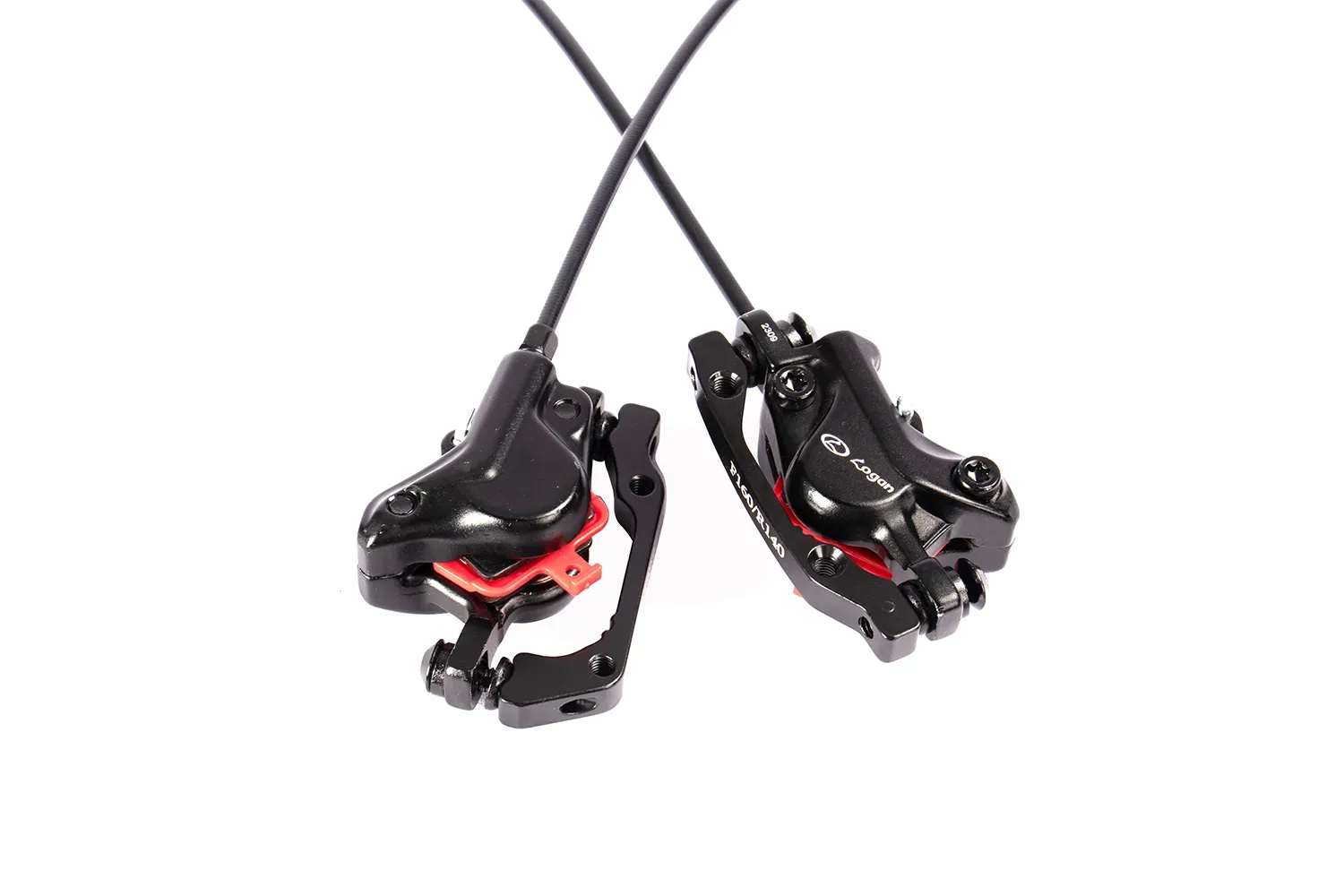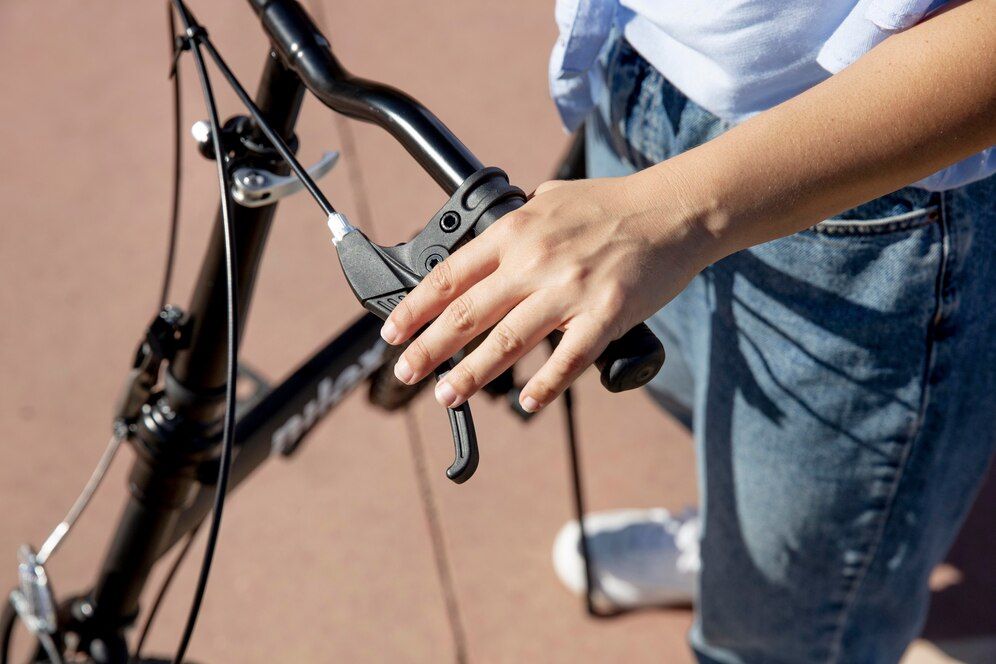
What is Better Hydraulic or Mechanical Bicycle Brakes?
When it comes to bicycle brakes, the debate between hydraulic and mechanical systems is a hot topic among cycling enthusiasts. Choosing the right braking system can significantly impact your biking experience, whether you're a casual rider or a competitive cyclist. In this article, we'll dive deep into the pros and cons of both hydraulic and mechanical bicycle brakes to help you make an informed decision.
Understanding Bicycle Brakes
What Are Bicycle Brakes?
Bicycle brakes are an essential component of any bike, providing the stopping power necessary for safety and control. There are various types of bicycle brakes, but the most common ones are hydraulic and mechanical. Each has its unique features, benefits, and drawbacks.
Why Are Bicycle Brakes Important?
Bicycle brakes are crucial for rider safety. They allow you to control your speed, navigate steep descents, and avoid obstacles. Effective braking systems enhance your overall biking experience, giving you the confidence to tackle diverse terrains.
Hydraulic Bicycle Brakes
How Do Hydraulic Bicycle Brakes Work?
Hydraulic bicycle brakes use fluid to transfer force from the brake lever to the brake pads. When you squeeze the brake lever, it pushes the fluid through a sealed line, which in turn pushes the brake pads against the rotor, creating friction and slowing down the bike.
Advantages of Hydraulic Bicycle Brakes
Hydraulic brakes provide more stopping power compared to mechanical brakes. This is especially beneficial in downhill biking or in emergency situations where you need to stop quickly. Additionally, hydraulic brakes offer consistent performance in various weather conditions. They are less affected by mud, rain, or snow, making them ideal for all-weather riders. Once set up, hydraulic brakes require less maintenance. The sealed system protects the fluid and other components from dirt and debris, reducing the need for frequent adjustments.
Disadvantages of Hydraulic Bicycle Brakes
Hydraulic brakes are generally more expensive than mechanical brakes. This can be a significant factor for budget-conscious riders. Moreover, the installation and maintenance of hydraulic brakes are more complex. They require specialized tools and knowledge, which might be a barrier for some riders. Although rare, hydraulic systems can develop fluid leaks, which can compromise braking performance and require professional repair.
Mechanical Bicycle Brakes
How Do Mechanical Bicycle Brakes Work?
Mechanical bicycle brakes use cables to transfer force from the brake lever to the brake pads. When you squeeze the brake lever, it pulls the cable, which moves the brake pads against the rotor, creating friction and slowing down the bike.
Advantages of Mechanical Bicycle Brakes
Mechanical brakes are generally more affordable than hydraulic brakes. This makes them an attractive option for beginners or those on a tight budget. Mechanical brakes are easier to maintain and repair. Most adjustments can be made with basic tools, and there is no risk of fluid leaks. The straightforward design of mechanical brakes makes them easy to understand and work with. This simplicity can be a significant advantage for DIY enthusiasts.
Disadvantages of Mechanical Bicycle Brakes
Mechanical brakes can be less reliable in extreme weather conditions. Cables can stretch or freeze, affecting braking performance. Mechanical brakes require more frequent adjustments to maintain optimal performance. Cables can wear out and need replacing, adding to the maintenance workload. Compared to hydraulic brakes, mechanical brakes generally offer less stopping power. This can be a drawback for aggressive riders or those tackling challenging terrains.
Comparing Hydraulic and Mechanical Bicycle Brakes
Performance in Different Conditions
Hydraulic bicycle brakes excel in various weather conditions. Their sealed system ensures consistent performance, whether it's raining or muddy. Mechanical brakes, on the other hand, can suffer in adverse conditions due to cable stretch and exposure to the elements.
Maintenance Requirements
Hydraulic brakes require less frequent maintenance once installed, but when they do need servicing, it can be more complex and costly. Mechanical brakes, while needing more regular adjustments, are easier and cheaper to maintain overall.
Cost Considerations
For many riders, cost is a significant factor. Hydraulic brakes are more expensive initially and can cost more to repair. Mechanical brakes, being more affordable and easier to fix, might appeal more to those on a budget.
Weight and Feel
Hydraulic systems are typically heavier than mechanical ones. However, they provide a smoother and more responsive braking feel. Mechanical brakes are lighter, which can be a plus for those concerned with the overall weight of their bike.
Longevity and Durability
Both types of brakes are durable, but hydraulic systems, with their sealed components, tend to last longer with less wear and tear. Mechanical brakes, with exposed cables, might wear out faster and require more frequent replacements.
Which Bicycle Brakes Are Better for You?
Consider Your Riding Style
Your riding style plays a crucial role in determining which braking system is better for you. If you're an aggressive rider who enjoys downhill or mountain biking, the superior stopping power of hydraulic brakes might be worth the investment. For casual or commuting riders, mechanical brakes might offer sufficient performance at a lower cost.
Think About Maintenance Preferences
Consider how comfortable you are with bike maintenance. If you prefer minimal maintenance and are willing to pay more upfront, hydraulic brakes are a good choice. If you enjoy tinkering with your bike and want to save money, mechanical brakes could be the way to go.
Evaluate Your Budget
Budget is a significant factor in any purchase decision. If you have the funds and want the best performance, go for hydraulic brakes. If you're on a tighter budget or are new to biking, mechanical brakes offer a great balance of cost and performance.
Factor in Your Bike Type
The type of bike you have can also influence your decision. High-end mountain and road bikes often come with hydraulic brakes, while entry-level and commuter bikes typically feature mechanical brakes. Ensure that the brake system you choose is compatible with your bike.
Conclusion
In conclusion, when considering the choice between hydraulic and mechanical bicycle brakes, it's important to weigh the specific needs and preferences that align with your biking style and budget. Hydraulic brakes offer superior stopping power and performance consistency, making them a compelling choice for avid cyclists who prioritize optimal performance across various terrains and weather conditions. On the other hand, mechanical brakes provide affordability, simplicity in maintenance, and reliability for everyday riders or those new to cycling.
At Movcan, we understand the importance of selecting the right accessories for your biking adventures. Our commitment to providing affordable off-road electric bikes for adults that cater to diverse preferences and needs. Whether you're looking for robust performance in challenging environments or seeking reliable, cost-effective solutions, Movcan is here to support your journey with quality products designed to enhance your riding experience. Discover the freedom and thrill of off-road biking with Movcan today.


